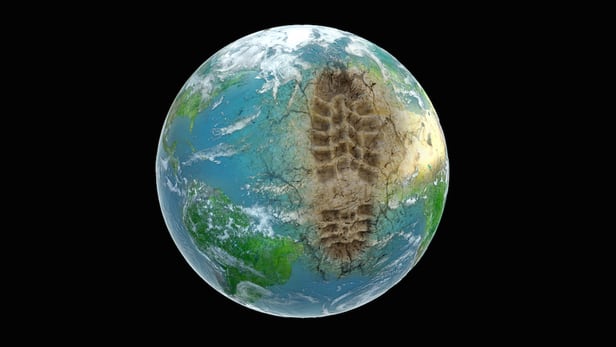Are we living in the Anthropocene epoch? Scientific body says "yes"

A scientific body has agreed that Earth has entered a new geological epoch - and humans are responsible.
In the relatively short time we've been walking the Earth, humans have left an undeniable impact on the planet. Now a scientific body has unanimously agreed that our actions have altered the Earth's natural processes enough to usher in a new geological epoch. Ladies and gentlemen, welcome to the Anthropocene.
The deep history of our planet is measured through various subdivided units of time, with transitions marked by observable changes in geology. Our current position in the timeline is the Subatlantic age (which began 2,500 years ago), of the Holocene epoch (beginning 11,700 years ago), of the Quaternary period (beginning 2.8 million years ago), of the Cenozoic era (which kicked off 66 million years ago with the extinction of the dinosaurs).
It's our current epoch, the Holocene, that's up for contention. The transitions between these intervals are marked by clear changes in the Earth's stratigraphy – the layering of rock – due to various forces. A scientific body known as the Anthropocene Working Group (AWG) believes that human activities have caused changes to the Earth's geological and atmospheric processes that are serious enough to warrant declaring the Holocene is over, and that a new epoch has begun.
Since 2000, the term "Anthropocene" has been used informally to describe our current time, but over the past few years the AWG has been analyzing the case for officially defining it within the Geological Time Scale. When the group's 35 members voted on a few key questions, all but one agreed that the Anthropocene is geographically real, and 30 of them voted that it should be formalized. Their findings were presented this week at the International Geological Congress in Cape Town, South Africa.
A few more steps still need to be taken before it all becomes official though. First, a "golden spike" needs to be identified as a point in time where these changes really began to take off, along with an associated sample of rock, where these effects are visible within the layers. That will help determine approximately when the Anthropocene began. Paul Crutzen, the atmospheric chemist who originally coined the term, suggested the beginning of the Industrial Revolution marks a likely turning point.
"The Anthropocene could be said to have started in the late eighteenth century, when analyses of air trapped in polar ice showed the beginning of growing global concentrations of carbon dioxide and methane," Crutzen wrote in a 2002 paper.
The majority of the AWG, on the other hand, agreed on 1950 as a starting date. Several clear signals from that time should be detectable in the recent rock sediment, including plutonium fallout from nuclear experimentation, materials like plastic, fuel ash particles, and carbon dioxide. All of these will leave a permanent record of our activities in the stratigraphy of the planet for future geologists to study.
The AWG is in the process of seeking potential sites to pull viable samples from, which could take another two or three years. The results of that would be used as the basis of a formal proposal to the group's parent body, which then passes it up the chain to other bodies before anything actually becomes official. If it makes it through that process, the Anthropocene might not be classified as an epoch after all, but could slot in as a new age under the to-be-continued Holocene.
So what does this mean for us? Not much, in practical terms. If accepted, we'll retroactively have been living in the Anthropocene for the past 70-odd years, but a new geological epoch doesn't happen everyday, and it's fascinating – plus more than a little alarming – to realize just how much we can affect the course of our home planet's future.
Sources: University of Leicester, Subcommission on Quaternary Stratigraphy